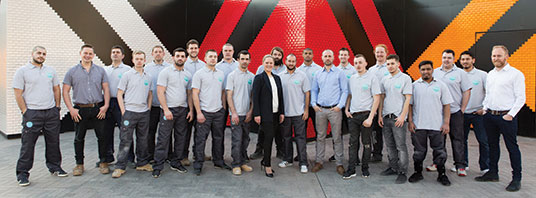UK’s Severe Skills Shortage Will Increase If EU Migration is Restricted
By Anne Timpany of On Tap Plumbers
As the Prime Minister Theresa May attempts to negotiate an agreement with the EU on her proposal to offer secure residency post Brexit for EU citizens already working in the UK, while ensuring British ex pats get the same benefits in EU states, she has, as yet, failed to both satisfy EU demands and to help to make EU nationals currently resident in this country feel that they are welcome to stay.
Although many people believe the ‘leave’ vote was foremost about immigration and limiting the number of EU citizens who could come and live here, many businesses and even British workers will suffer if migration is severely restricted. As the co-Founder and a Director of On Tap Plumbers, a multi award winning commercial plumbing firm, I am very aware that the construction industry is already having to deal with a desperate skills shortage. With over 45% of people working in the industry in London from overseas, I think that related businesses, politicians and influencers need to start shouting louder now to avert a complete disaster after 2019, if not before.
At OTP we welcome well qualified EU plumbers with open arms because they are so hard working and reliable. With our workforce we have a great balance of Brits and non-nationals and they work very closely as a team. We are at the ‘coalface’ and to us the words ‘skills gap’ is not just a fancy phrase, it’s a reality. We are going into schools and colleges to inspire the next generation to enter the construction industry but they are, at best, at apprentice level when they get their NVQs and need a lot more training on site.
This problem has to be sorted out quickly because the more the government dithers, the fewer skilled people from the EU will even want to come and work in the UK.
In the PM’s proposal, it was stated that all EU nationals lawfully resident for at least five years will be able to apply for “settled status” and be able to bring over spouses and children. Those who come after an as-yet-unagreed date will have two years to “regularise their status” but with no guarantees.
Meanwhile The Migration Matters Trust, a cross-party group of politicians, business leaders and trade unionists which encourages an evidence-based debate on immigration, studied the relationship between the migration, unemployment and employment figures over the past 10 years.
The group discovered that the plan to cut net migration to under 100,000 a year would almost double unemployment in the UK to more than three million, according to their new study which claimed that British workers would be the main losers from lower economic growth caused by the country having fewer people to drive business expansion and, in turn, consumer demand and spending.
Barbara Roche, Chair of Migration Matters and a former Labour Immigration Minister, said: “It’s not politically correct to say this, but some of the people hit hardest by cutting migration to below 100,000 would be British workers. The case for immigration isn’t about abstract altruism but British self-interest. By plugging skills gaps in businesses, immigration safeguards the jobs of British workers in those firms.”



